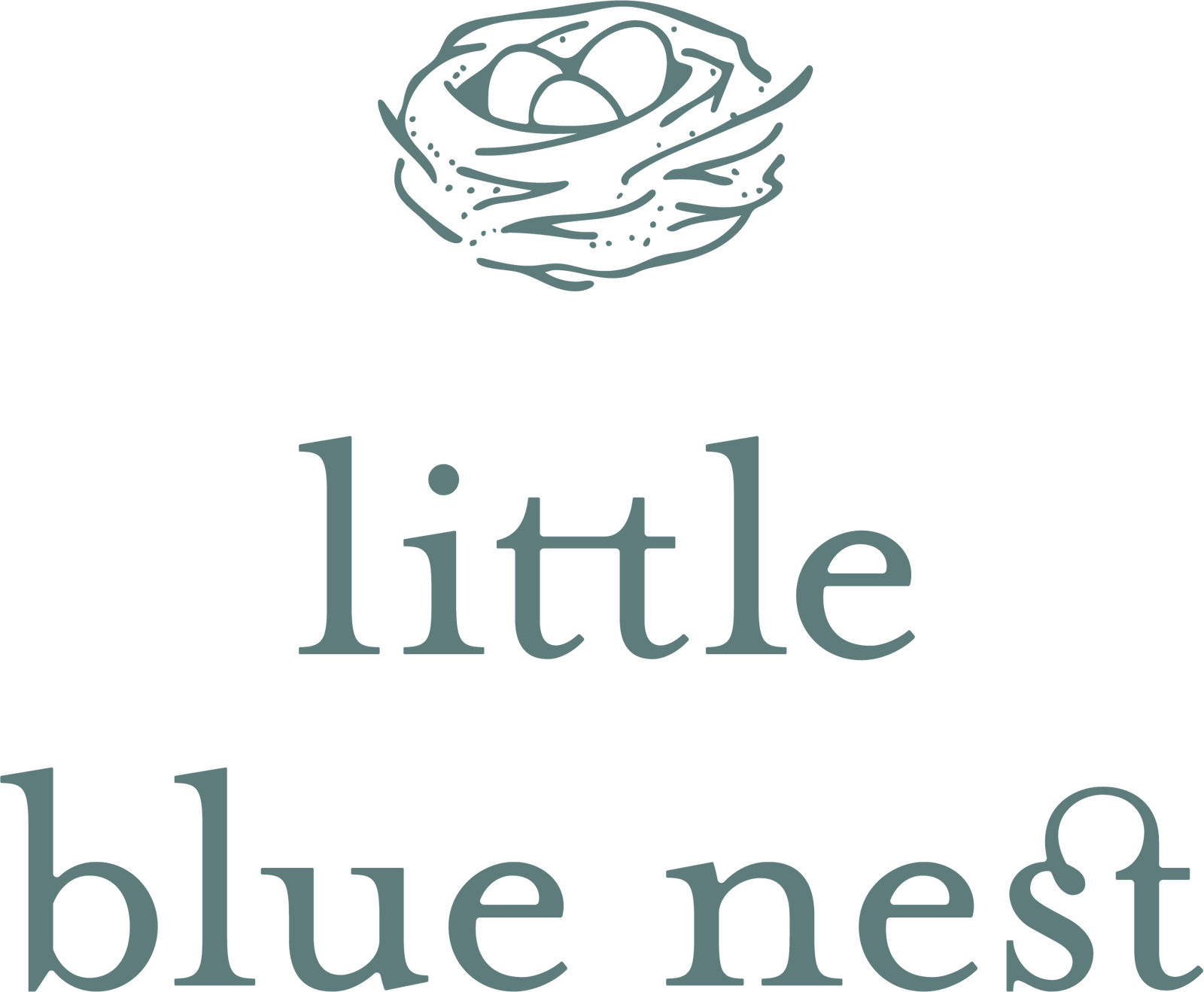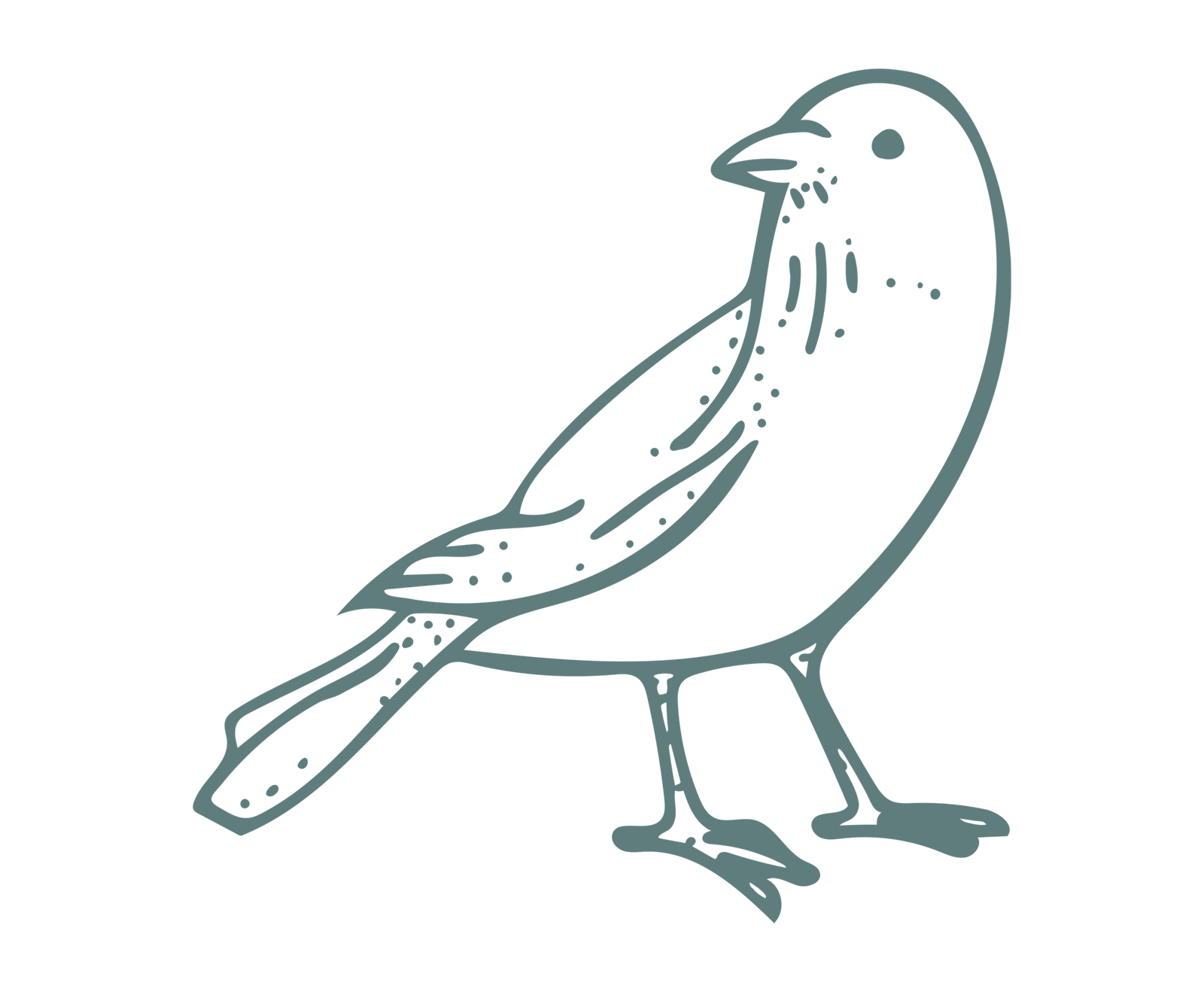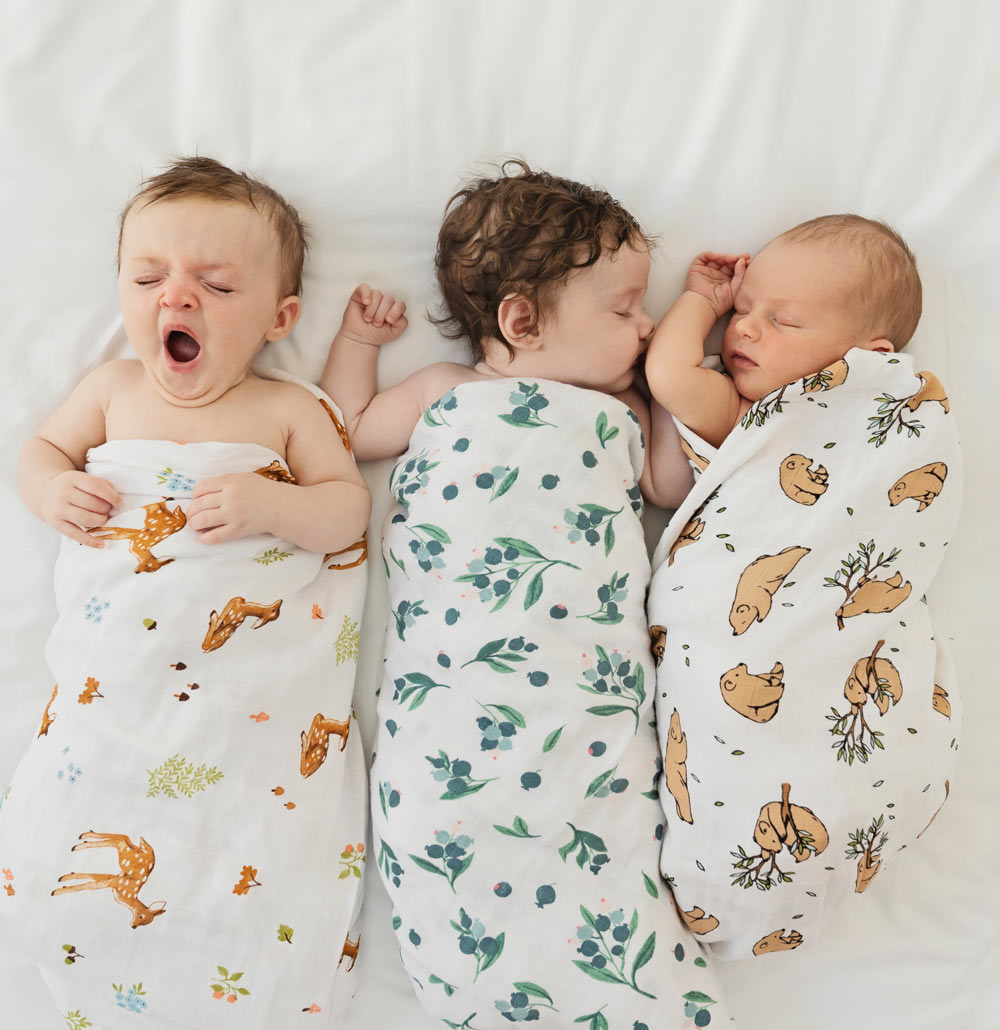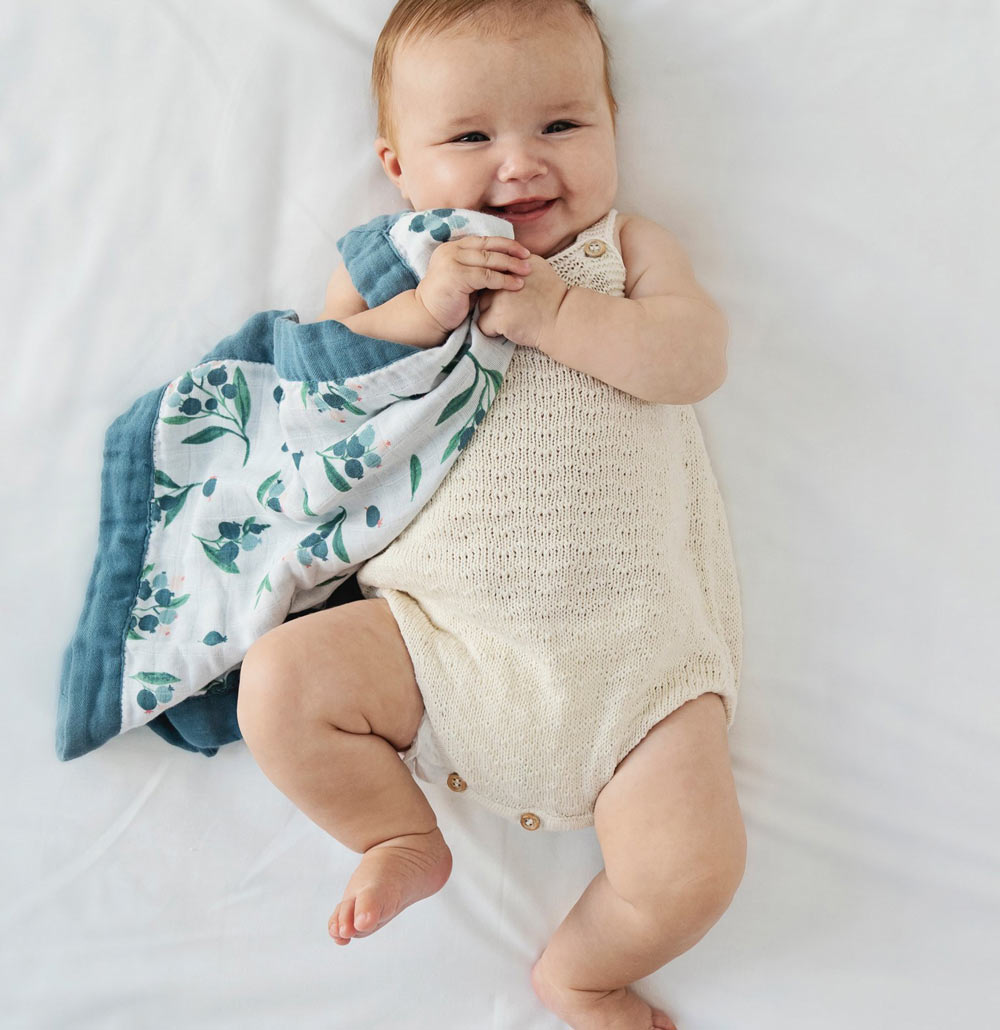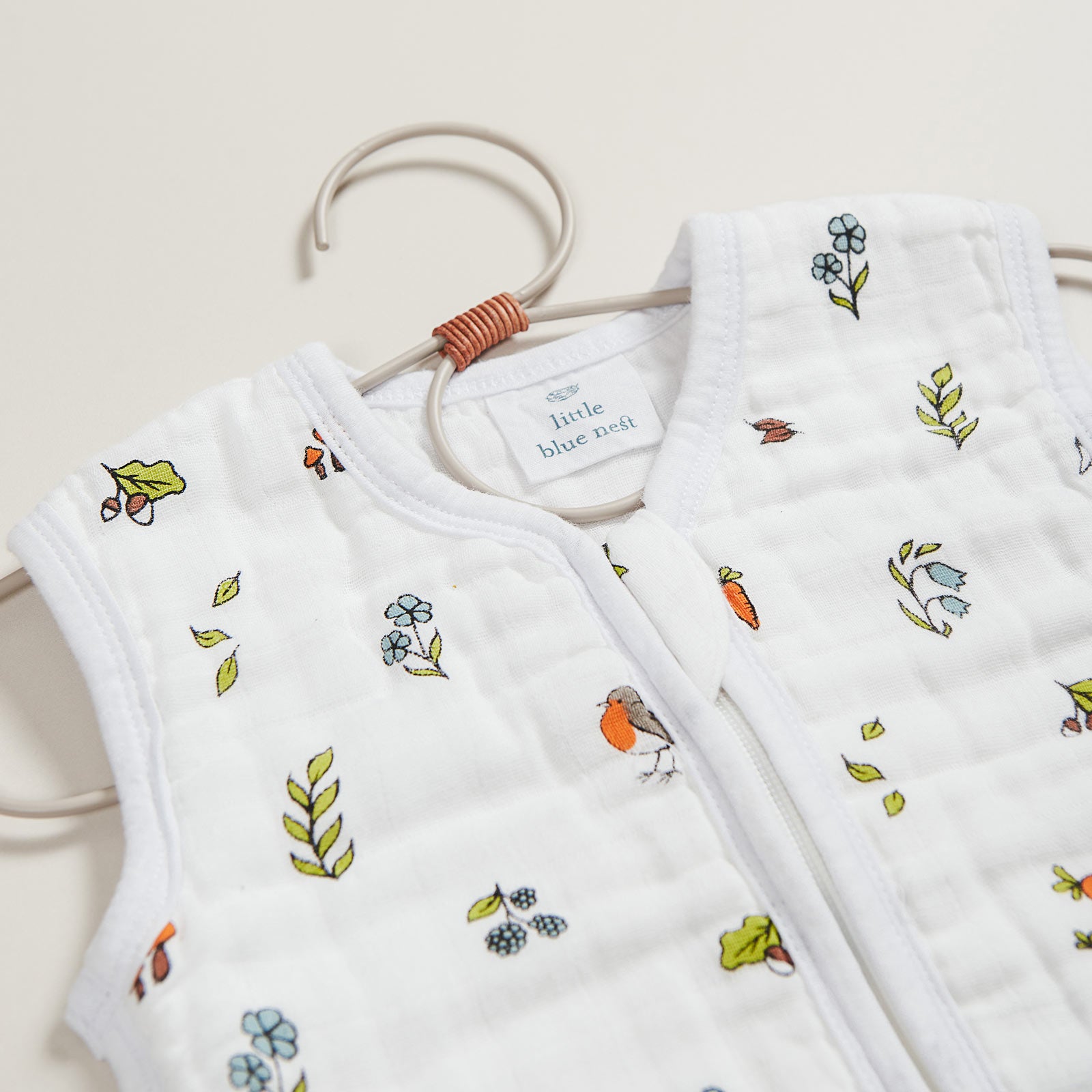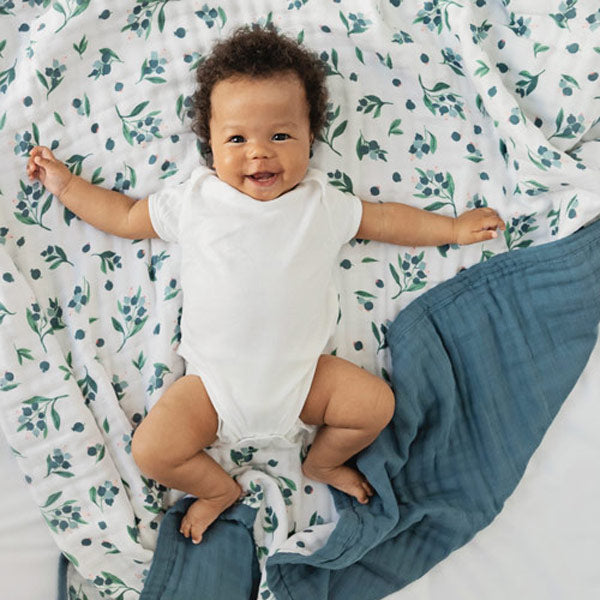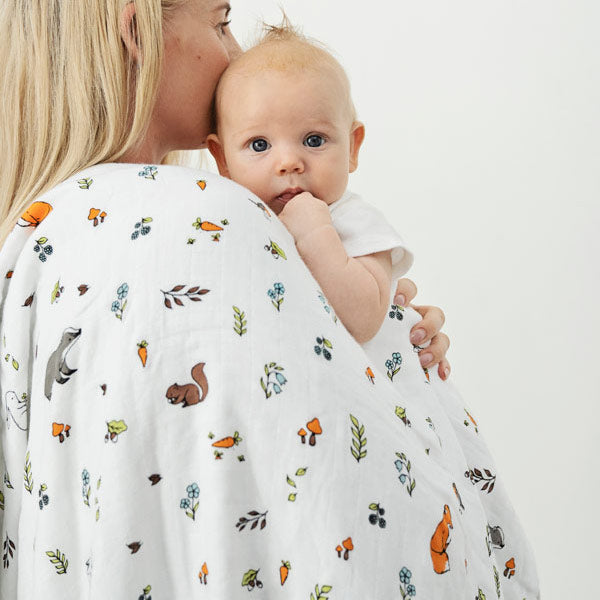We’ve all heard the expression ‘sleep like a baby’, but contrary to popular opinion, we know it can sometimes take a lot to settle a child at night.
However, it’s not just sleep time when separation anxiety in babies occurs, this can happen at any time of the day – from drop off at childcare, to being apart from baby for a few minutes.
Tugging at the heartstrings of parents, this can be distressing for mums, dads and babies alike. However, many families find that a baby comforter can be a useful tool, offering reassurance and comfort.
This is why baby comforters are professionally referred to as ‘transitional objects’ – as babies are able to transfer feelings of attachment from their carer to the object, helping them feel more secure in their environment.
What is separation anxiety in babies?
First of all, separation anxiety in babies is perfectly normal. It often manifests as clingy behaviour, crying, and/or a fear of strangers, when babies and toddlers are separated from their carers – even for a short period.
This also includes separation anxiety in babies at night time. According to experts, this is a normal part of child development, typically occurring from six months to three years old.
The good news is that this is usually a phase that children grow out of. In the early days it may be as simple as a parent going in another room that may cause upset, whilst in toddlers this may evolve to drop off’s at nursery.
This is all part of a child’s realisation of their co-dependency on their carer, and growing awareness of the world around them. This all results in infants feeling unsettled in new situations or around new people, especially when you’re not by their side.
What is a baby comforter and how can it help?
Research suggests that a comforter may help with separation anxiety in babies. One such study by baby whisperer Tizzie Hall of Save our
Sleep concluded that a baby comforter can be used as a great aid to get baby to sleep.
There’s a few reasons for this. Firstly, it may be comforting for a baby to have something that they positively identify with you close to them. Secondly, it can be reassuring and familiar too. Finally, the soft texture and familiar smell of mum or dad, may bring them added reassurance when apart.
On that note, if your child is particularly attached to a comforter, do bring it along to immunisation, weigh-in’s, or other events that are stressful.
How to choose a baby comforter
You probably received a ton of stuffed toys and plush comforters when your child was born. It’s important to check these for age suitability and UKCA/CE markings, avoiding any with ribbons, cords, or parts that could come off. Choose a comforter that can be washed too.
There are various baby comforters on the market. The best comfort objects for babies are organic muslin comforters, which are easy for little hands to grip and cuddle up to. Plush toy comforters are also popular, especially the soft fabrics used.
While it’s fine for little ones to use a baby comforter to help them doze off, it’s important to choose one that is safe to do so. And, once they’re asleep, it’s a good idea to remove it from their sleeping area. It’s advised that babies under six months should not be left with a toy or comforter unsupervised.
Breathable toys, and soft baby comforters made are ideal – better still if they’re organic. As with all things parenting, consistency and routine is key – the more exposure baby has to the object at sleep times, the more likely they will associate it with sleeping.
If you're not sure which to choose, we recommend our Into the Woods pattern organic cotton muslin comforter security blanket. Made with 2-layers of luxuriously soft plush organic cotton muslin, this beautifully illustrated woodland comforter security blanket is perfect to soothe your little one.
Also see what one parent had to say about the comforter security blanket:
"My little boy is so in love with his comforter. The print is beautiful, the material is so soft and it’s the perfect size. My son has formed a real attachment to it and will not take any naps or go to bed without it. Thank you so much littlebluenest for giving us the best quality and most beautifully designed products!" - Ashleigh
When and how to introduce a baby comforter
When babies are very little, they won’t have the capability to tell you’re their favourite toys, although some parents might have a hunch! So, it’s fine for you to pick a muslin comforter baby blanket, or soft toy with soother on their behalf.
A muslin comforter baby object is a good choice, as you can wear this on your person, or put down your top for a few hours or longer, to help transfer your comforting smell. This is optional, but preferable.
It’s advisable to introduce a baby comforter before ten months, after which they’ll have likely found another source for self-soothing that can be hard to replace.
You might decide to introduce this as part of your nap-time or bedtime routine – whatever works for you. When your child gets older, they will probably pick a comforter themselves – it’s quite common for separation anxiety to rear its head again at 18 months for instance.
Summary
Whether a muslin comforter baby toy, or soft plush item – baby comforters are a great way to soothe and support infants. This can be especially helpful during moments apart, as well as to alleviate separation anxiety in babies at night. For this reason, baby comforters, especially organic ones, make a wonderful gift for new parents too.
If you have any concerns around your child’s sleep or worried about separation anxiety, please speak to a professional caregiver. The information in this feature is purely editorial and does not constitute professional medical advice.
You May Like: What is a Muslin Cloth?

